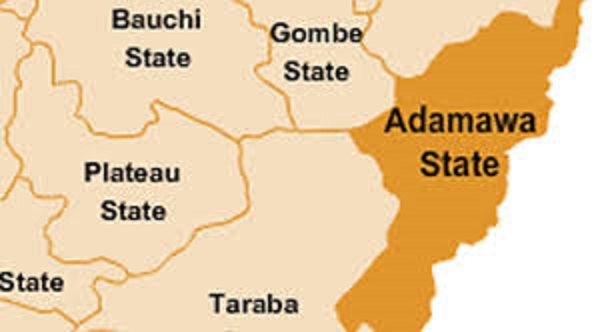Adamawa State blazing the trail
Now that the primary elections have been concluded, it has become clear that Adamawa State will most likely have a lady governor or deputy governor. The APC gubernatorial candidate will be A’ishatu Dahiru Ahmed, the incumbent representing Adamawa Central Senatorial District, while the PDP candidate Ahmadu Umaru Fintiri, the incumbent governor, will have as his […]

Now that the primary elections have been concluded, it has become clear that Adamawa State will most likely have a lady governor or deputy governor. The APC gubernatorial candidate will be A’ishatu Dahiru Ahmed, the incumbent representing Adamawa Central Senatorial District, while the PDP candidate Ahmadu Umaru Fintiri, the incumbent governor, will have as his running mate Professor Kaletapwa Farauta, the current Vice-Chancellor of Adamawa State University Mubi. These primary elections in Adamawa State were trailblazing events, some of the first of their kind in the annals of gubernatorial elections in Nigeria.
This page has always shared the frustrations of our womenfolk who have manifestly been excluded from elective posts. A few weeks ago, I featured A’isha Waziri-Umar, a well-known barrister, banker and political activist, who captured the need for gender balance in governance thus: “When there is gender balance in governance and leadership, the quality of life amongst the populace is greatly improved. Women in power can be counted upon to mention issues others overlook, to support causes that others stoutly oppose, and make concerted efforts to put to end abuses that others accept – there would be no instruments more effective in promoting good governance than adequate empowerment of women. No other policy has the potential to reduce the child and maternal mortality rate than the conscious inclusiveness of women in governance.”
Among the northern states, I would count Adamawa State as one state that has been miles ahead in this endeavour. After Zainab Abdulkadir Kure, who represented Niger South constituency in the Senate from 2007 to 2015, Adamawa was the next state to produce a lady senator in the person of Binta Garba Masi in 2015. Binta Masi’s journey to the Senate is one interesting story itself. Though born in Kaduna and married to an indigene of Kaduna State, her roots were in Adamawa State. She began her political career in Kaduna and at the beginning of this dispensation in 1999, she sought to represent Kaduna South constituency in the House of Representatives and won. The constituency was satisfied with her performance and returned her for a second term in 2003.
Having watched her performance in the House of Representatives from a distance, her state of origin Adamawa beckoned and offered her the chance to contest for the Madagali/Michika Federal Constituency in the House of Representatives. She won again and returned in 2015 to contest and won the Adamawa North senatorial seat. When she was in the 8th Senate, she had the distinction of being the only lady senator from the North. But in one of those political twists, Binta Masi lost to Ishaku Elisha Abbo of the PDP in the battle for the 8th Assembly.
Despite this loss, Adamawa State still produced another lady senator for the 8th Assembly. This time, it was A’ishatu Dahiru-Ahmed, another APC candidate, who won the election to represent Adamawa Central Senatorial District. A’ishatu Dahiru-Ahmed popularly known as Binani has also chalked up many firsts in the political arena. She began her political journey as the first lady to represent Yola North/Yola South/Girei constituency in the House of Representatives from 2011-15. She had a relapse in the 8th Assembly but returned in a bigger way to win the Senate seat in this 9th Assembly for the Adamawa Central Senatorial District.
Probably buoyed up by the level of support in the constituency and the party, Binani decided to go for the gubernatorial seat when the race opened for the primaries early this year. It was one of the most hotly contested governorship primary elections in the country featuring five male aspirants including heavyweights such as former presidential candidate Nuhu Ribadu, former state governor, Bindow Jibrilla, and a member of the House of Representatives, Abdurrazak Nimdas. She was a clear winner scoring 430 votes and over 44 per cent of the total votes to Nuhu Ribadu’s 288 votes who came second.
If she wins in the election next year, Binani will become the first elected lady governor in Nigeria. One that came close to that was Virginia Ngozi Etiaba who became governor of Anambra State in 2006, when her principal, Peter Obi, was impeached. Virginia Etiaba was deputy governor and held the post of governor for only three months relinquishing it when Peter Obi was returned by the court.
It is clear Adamawa State has established itself, in our political firmament, as a haven for female aspirations to whatever level, worthy of emulation by all the other states. Not to be undone, the Adamawa State Governor, Amadu Fintiri, who has his party’s ticket, the PDP, to go for a second term, has decided to pair with a lady deputy, Professor Kaletapwa Farauta, for the next general elections. The professor who has also been breaking ice ceilings, here and there, was the first lady vice chancellor of Adamawa State University (ADSU), Mubi. She had earlier served as chairman of the Adamawa State Universal Basic Education Board (ADSUBEB) and then as commissioner for Education.
Ladies will obviously make a good showing in next year’s general elections. Besides the Adamawa State’s grand example, many other ladies have been selected as running mates in Kaduna, Lagos, Rivers, Cross-River and Plateau states, in a variety of parties. Admittedly, it is a far cry from the envisaged gender inclusiveness, but it is a good beginning.
